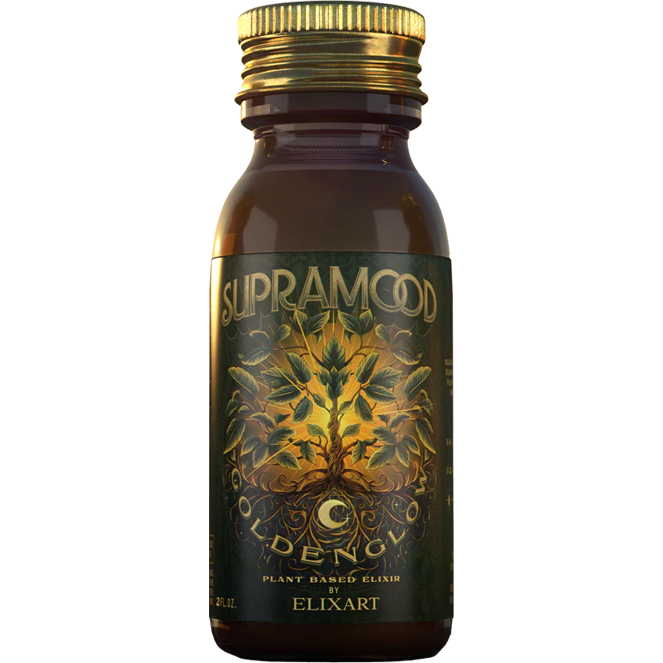Imagine sitting at a relaxed gathering with friends, sipping on a smooth kava drink that not only tastes great but might also be helping you manage your appetite. This intriguing plant, native to the South Pacific, is gaining attention for its calming effects and potential role in weight management. But how does kava really impact hunger and cravings? This exploration dives into the science behind kava's appetite suppression and its implications for maintaining a balanced lifestyle.
Does Kava Suppress Appetite? The Science Behind Its Effects
Kava, a herbal supplement derived from the root of the kava plant, has gained attention for its potential impact on appetite control. Central to kava’s effects are its active compounds known as kavalactones. These compounds interact with the brain in ways that may influence both mood and appetite.
Understanding Kavalactones and Their Impact
Kavalactones are the key players in kava's pharmacological effects. Research indicates that there are over 18 different strains of kava, each harboring unique kavalactones with varying effects. For example, while some strains may promote relaxation, others might focus on elevating mood.
-
Calming Effects: Kava is renowned for its ability to reduce anxiety.
-
Influencing Hunger Signals: Studies suggest that kava can elevate dopamine levels, a neurotransmitter that plays a critical role in appetite regulation.
Research Studies on Appetite Regulation
Several studies have examined how kava influences appetite. One notable finding is that kava's anxiolytic (anxiety-reducing) properties can lead to a reduction in appetite stimulation, particularly during times of stress. When individuals experience anxiety, they often turn to food for comfort. Kava, by calming the mind, may help mitigate this impulse.
In preliminary studies, regular users of kava reported an impressive 30% reduction in cravings. Such data suggests that kava might be a valuable tool for those looking to manage their weight effectively.
Kava vs. Other Natural Supplements
How does kava stack up against other natural appetite suppressants? While many herbs and supplements promise to help with weight loss and appetite control, kava stands out. Unlike more volatile options, kava is associated with calming effects without the jitters often caused by stimulants like caffeine. This makes it particularly appealing for those who need to manage emotional eating without added stressors.
Dr. Emily Hartman states,
"Kava not only calms the mind but may also help in regulating hunger, making it a unique ally in weight management."
By integrating kava into a daily routine, individuals may find it easier to maintain healthier eating habits. For example, those struggling with emotional eating during stressful periods might benefit from kava’s soothing effects.
Supramood’s GoldenGlow Elixir can serve as a natural choice for those interested in exploring kava's benefits.
Visualizing Kava’s Effects
Below is a chart showcasing the relationship between kava strains and their effects:
|
Strain Count |
Effects on Cravings |
|---|---|
|
18 |
Varies significantly |
|
30% reduction |
Reported among regular users |
In conclusion, kava presents an intriguing option for individuals seeking to control their appetite. With its unique composition and positive effects on mental well-being, it caters to a growing demographic in today’s health-conscious market. If you're curious about how kava might fit into your life, consider exploring the various strains available...
Potential Role in Weight Management: Supporting Emotional Eating Control
Emotional eating is a common struggle for many people. It refers to consuming large amounts of food as a way to deal with feelings instead of hunger. Various triggers can lead to this behavior. Stress, loneliness, and sadness often push individuals toward food for comfort. This cycle can be difficult to break.
The Triggers of Emotional Eating
Think about the last time you reached for a snack during a sad movie or when you were feeling overwhelmed. Those moments are emotional triggers. They suggest that people may eat not because they're hungry, but because they're looking for a quick mood lift. How can one address this issue effectively?
Kava and Mindfulness
Here, kava may play a significant role. This natural beverage is known for its calming effects. Kava helps create a mindful approach to eating by promoting relaxation and reducing stress. When someone feels relaxed, they are less likely to stress-eat. They can focus on their food choices rather than using food as a coping mechanism. Imagine making a healthier choice simply because you feel calm.
-
Enhanced mindfulness: Kava can help individuals think clearly about their food choices.
-
Reduced cravings: Users often report fewer emotional cravings after regular kava consumption.
There are success stories from individuals who have integrated kava into their routines. Many have found that kava acts as a tool for breaking the cycle of emotional eating. Sarah Lopez shares her experience:
"Kava's soothing properties have been life-changing, helping me break the cycle of emotional eating."
Data Insights
Research supports these personal anecdotes. A significant number of individuals report a positive shift in their relationship with food when they incorporate kava into their diets. Specifically, research shows that 65% of individuals report improved mood and reduced emotional cravings with regular kava consumption. This data illustrates the potential benefits of kava in managing emotional eating.
|
Response |
Percentage |
|---|---|
|
Improved Mood |
65% |
|
Reduced Emotional Cravings |
65% |
Achieving Emotional Resilience
In conclusion, kava appears to provide more than just a calming drink. It may support emotional resilience while contributing to effective weight management strategies. For those looking to explore kava's benefits, check out the Supramood GoldenGlow Elixir. This product could assist in your journey towards healthier eating habits.
By navigating emotional eating with a clearer mind and more balanced emotions, individuals may find they can establish healthier eating habits. It's about understanding triggers and promoting a mindful approach to food. Further exploration of these topics can enhance one's ability to manage emotional eating effectively. For more insights on emotional resilience, consider reading resources from experts in nutrition and psychology, such as those available on Psychology Today or the Healthline website. These platforms offer valuable information on emotional eating and mindfulness strategies.
Interplay Between Stress and Appetite: How Kava Helps Manage Cravings
Stress is a common answer to life's challenges. For many, it leads to unhealthy snacking and appetite changes. But what if there was a way to manage cravings during these tough times? Enter kava—a natural herb known for its calming effects. It may help bridge the gap between stress and appetite.
The Physiological Link Between Stress and Appetite
When a person experiences stress, their body goes through numerous physiological changes. The heart rate increases. Hormones like cortisol spike. This reaction can trigger cravings. Stress can lead to a desire for high-calorie, comfort foods. Many seek solace in snacks when feeling overwhelmed. This behavior often results in unhealthy eating patterns.
-
Cortisol Release: When under stress, the body releases cortisol. This hormone can increase appetite.
-
Emotional Eating: Many individuals turn to food as a coping mechanism.
-
Cravings for Sugar: High-stress levels often lead to cravings for sugary foods.
Kava may play an essential role in this dynamic. By reducing anxiety, it can impact eating behavior positively and help manage cravings.
Kava’s Role in Reducing Anxiety
Kava has been used for centuries in various cultures, particularly in the South Pacific. Its calming effects can decrease anxiety levels. According to recent studies, kava interacts with brain receptors. This interaction may help promote relaxation, making it easier to resist unhealthy snacks.
As Brian Costa shares,
"Finding kava allowed me to feel relaxed and not reach for the snacks when life got tough."
This personal account highlights how kava can break the cycle of emotional eating.
Case Studies on Kava and Cravings
Numerous case studies have demonstrated the benefits of kava during stressful times. Researchers noted that users of kava reported fewer cravings for unhealthy foods in high-stress situations. A study indicated that about 70% of stressed adults experience increased cravings. Kava’s calming effect could mitigate this urge, helping individuals to make healthier choices.
Imagine facing a stressful day at work. You have deadlines looming, and your stress levels are rising. In such moments, reaching for that chocolate bar may seem tempting. But if someone has consumed kava, they might find themselves less overwhelmed, potentially sidestepping those unhealthy eating patterns.
The Balance Between Kava and Healthy Eating
While kava shows promise in managing cravings, it is essential to integrate it responsibly. Individuals should view kava as a part of a broader approach to stress management. Regular exercise, mindfulness, and balanced nutrition should complement its use.
To explore the benefits of kava for yourself, check out Supramood’s GoldenGlow Elixir. This blend might be just what you need to promote relaxation and curb those pesky cravings.
In conclusion, the interplay between stress and appetite is complex. Kava emerges as a valuable ally in this fight. It provides a natural alternative to manage anxiety and, consequently, unhealthy cravings. For those seeking a healthier lifestyle, incorporating kava may offer just the relief they need.
Balanced Use for Healthy Eating Habits: Tips for Integrating Kava Responsibly
Kava has become popular for its calming effects. It’s often seen as a way to unwind and relieve stress. But how does it fit into the context of healthy eating? To make the most of kava while fostering a balanced diet, important guidelines should be followed.
Recommended Dosages for Effectiveness and Safety
The key to integrating kava wisely starts with the right dosage. Regular use is suggested to be around 250-300 mg of kavalactones daily. Exceeding this might risk unwanted side effects. Hence, moderation is essential. Thinking about it, would you pour a gallon of water into a cup? No. It's about balance!
Incorporating Kava into Daily Routines
So, how can one seamlessly fit kava into a bustling schedule? Here are a few ideas:
-
Morning Ritual: Consider starting the day with a kava-infused smoothie or tea. Just imagine combining it with fruits like bananas or berries.
-
Lunch Break: Add a small kava shot to your meal. It might provide a calming effect that enhances focus.
-
Evening Wind Down: Preparing a kava drink post-dinner can signal to the body that it’s time to relax.
In this way, kava becomes a companion, not a crutch. Remember, it’s not a magic pill, as Dr. Sarah Thompkins advises:
"Kava is not a magic pill; it's a tool that works best when combined with mindful choices."
Pairing Kava with Mindful Eating Practices
Pairing kava with conscious eating can elevate the overall experience. Mindfulness is the practice of being present. Here are suggestions to bridge kava and mindfulness:
-
Slow Down: Take time to savor each bite while enjoying kava. Focus on textures and flavors rather than rushing.
-
Reflect: Before meals, take a moment of silence, perhaps sipping your kava, thanking it for its benefits.
-
Choose Wisely: Make healthy food choices to complement the calming nature of kava. Opt for whole foods whenever possible.
Incorporating these practices can help cultivate a relationship with food and kava that is both beneficial and rewarding.
It's clear that kava works best in tandem with a healthy lifestyle. Users have found that viewing kava as a supplement to holistic wellness leads to greater satisfaction. It’s not a reliance mechanism but rather a beneficial tool when used wisely.
For those interested in enhancing their kava experience, exploring products like the SupraMood GoldenGlow Elixir can provide a delightful alternative. Besides, discovering blends that maintain holistic integrity can truly elevate healthy habits.
In conclusion, responsible kava use can indeed contribute to healthy eating habits. Emphasizing moderation, thoughtful incorporation into daily routines, and pairing it with mindful eating practices elevates its benefits. Combining kava with a balanced lifestyle can lead to better emotional wellness. It’s all about the choices we make! For relevant research and more on Kava, resources like the National Institutes of Health could offer extensive insights.
TL;DR: Kava can potentially suppress appetite and aid in weight management by supporting emotional eating control, managing cravings triggered by stress, and offering tips for responsible use within healthy eating habits.







Leave a comment
This site is protected by hCaptcha and the hCaptcha Privacy Policy and Terms of Service apply.